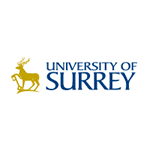
About the course
Course content
The MSc in Criminology and Social Research (Cybercrime and Cybersecurity) has been created to meet the growing market demand for enhanced knowledge and practice in the area of cybercrime and its control and helps address the current gaps in cyber skills recently identified as a ‘key challenge’ by the National Audit Office.
It offers the opportunity to work with leading theorists in the field of cybercrime and experts from the Surrey Centre for Cybersecurity – one of only 14 recognised as Academic Centres of Excellence in Cyber Security Research by GCHQ and the UK Government.
Building on our existing MSc in Criminology and Social Research, the programme will offer a particular focus into the areas of cybercriminality and cybersecurity to provide you with enhanced knowledge in this area and an increasingly wider range of related career options upon graduation.
The programme is aimed at graduates and practitioners who seek advanced knowledge about issues connected with cybercrime and cybersecurity, the criminal justice system and social research.
It will also suit graduates and practitioners considering a PhD in the area of cybercrime or cybersecurity, practitioners in the criminal justice system and related government and voluntary agencies who wish to develop their understanding of the wider issues connected to cybercrime.
Programme structure
This programme is studied full-time over one academic year and part-time over two academic years. It consists of eight taught modules and a dissertation.
Example module listing
The following modules are indicative, reflecting the information available at the time of publication. Please note that not all modules described are compulsory and may be subject to teaching availability and/or student demand.
- Cybercrime and Cybersecurity
- Criminological Theories
- Information Security Management
- Information Security for Business and Government
- Crime and Offending
- Law, Society & Social Control
- Data Analysis
- Field Methods
- Dissertation
Students are encouraged to take up opportunities for experiential learning in workplace settings, providing extended opportunities for work experience and career development in professional research settings.
The department supports students in finding three-to-four-week research placements during spring and summer vacation periods, and this approach has recently been supplemented to include strategies of support for students seeking a wider range of opportunities for professional development in the first-hand experience of research organisation – including such activities as part-time internships over longer periods, workplace visits, or shadowing research professionals.
This introduces further flexibility in a student-led process of professional development in light of increasing external pressures on students’ commitments and responsibilities. All, however, involve opportunities to consider issues in career development and professional skills.
The support process involves the department working closely with students on a one-to-one basis toward their goals and requirements, in association with the University’s Careers Service, to offer pastoral advice and support.
Organisations the department has worked with in the past have included the Office of National Statistics, Cabinet Office, HM Inspectorate of Prisons, Sussex Youth Offending team and Surrey Police.
In some cases, the work experience may also be with projects in academic contexts. Students seek experiential learning opportunities with the support of the department’s Senior Placement Tutor, and assistance from the Faculty Placement Office.
Educational aims of the programme
The MSc pathway in Cybercrime & Cybersecurity on the MSc Criminology and Social Research will combine grounding in the discipline of criminology and training in the full range of qualitative and quantitative methods of social research with specialised understanding of the key issues in cybercriminality and the cybersecurity measures being developed against this.
It is designed to meet the needs of students graduating from a first degree who have an interest in cybercrime, people who are currently employed and wish to apply knowledge of criminology and cybercrime within their present job, or those who wish to move into specialised research or practice in the fields of cybercrime and cybercriminality.
The degree provides an ideal foundation to undertake a part-time or full-time PhD.
The degree is suitable for a wide range of students in terms of age, professional background, and current occupation and circumstances. Because of this diversity of experience, students on the degree learn a great deal from each other, including at the residential Weekend Conference in the middle of the first semester, and the Day Conference at the end of the first semester.
The full-time MSc is taught over 12 months and the part-time course over 24 months. Students who do not wish to undertake the Masters dissertation can obtain the Postgraduate Certificate in Criminology and Social Research (Cybercrime & Cybersecurity) after gaining 60 credits, or the Postgraduate Diploma after gaining 120 credits.
Students studying for the MSc in full-time mode are required to submit their dissertation during the academic year in which they commenced registration.
It is expected that students studying part-time will have obtained a minimum of 60 credits by the end of the first 12 months of registration in order to proceed into the second year.
Placements
A distinctive component of the MSc is the opportunity to undertake a placement at a criminal justice agency or research institute for four weeks during the spring break. The practical experience and insights gained reinforce formal learning.
Conferences
A residential weekend conference is attended by all programme members, PhD students and teaching staff in November.
This provides a less formal atmosphere for discussions concerning criminology, research and related themes; it includes lectures from eminent guest speakers and members of staff, seminars and small group discussions.
The Department also organises a day conference for MSc students at the University, with student presentations and guest speakers.
Global opportunities
We often give our students the opportunity to acquire international experience during their degrees by taking advantage of our exchange agreements with overseas universities.
In addition to the hugely enjoyable and satisfying experience, time spent abroad adds a distinctive element to your CV.